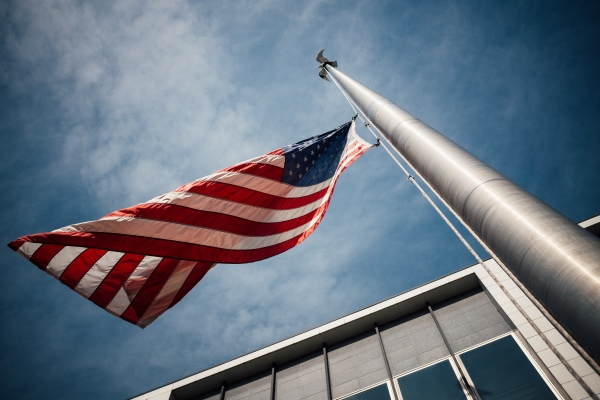
The US government has issued a first set of recommendations in answer to President Trump’s memorandum – published last year – on ways to tackle the trade in counterfeit and pirated goods.
Published by the Department of Homeland Security (DHS), the report focuses mainly on the online trade in these goods, which it says “erodes US economic competitiveness and catalyses compounding threats to national security and public safety.”
Last April, the Trump administration issued a memo announcing its intention to clamp down on the illicit trade, with an emphasis on third-party marketplaces – like Alibaba, Amazon and eBay – that serve as conduits for fake goods into the US.
“The President’s historic Memorandum provides a much warranted and long overdue call to action in the US government’s fight against a massive form of illicit trade that is inflicting significant harm on the American homeland. The counterfeiting and pirating of goods must be stopped in its tracks and DHS is leading the way in protecting both consumers and businesses,” said DHS acting Secretary Chad Wolf.
The new report makes 11 recommendations for DHS and other federal agencies, with another 10 ‘best practice’ recommendations for e-commerce sites and third-party marketplaces.
The DHS and government recommendations are as follows:
- 1. Ensure entities with financial interests in imports bear responsibility
- 2. Increase scrutiny of Section 321 environment
- 3. Suspend and debar repeat offenders; act against non-compliant international posts
- 4. Apply civil fines, penalties and injunctive actions for violative imported products
- 5. Leverage advance electronic data for mail mode
- 6. Anti-Counterfeiting Consortium to Identify online Nefarious Actors (ACTION) plan
- 7. Analyse enforcement resources
- 8. Create modernized e-commerce enforcement framework9. Assess contributory trademark infringement liability for platforms
- 10. Re-examine the legal framework surrounding non-resident importers
- 11. Establish a national consumer awareness campaign
For e-commerce platforms and third-party marketplaces, best practice recommendations are:
- 1. Comprehensive "Terms of Service" agreements
- 2. Significantly enhanced vetting of third-party sellers
- 3. Limitations on high risk products
- 4. Rapid notice and takedown procedures
- 5. Enhanced post-discovery actions6. Indemnity requirements for foreign sellers
- 7. Clear transactions through banks that comply with US enforcement requests for information (RFI)
- 8. Pre-sale Identification of third-party sellers
- 9. Establish marketplace seller ID
- 10. Clearly identifiable country of origin disclosures
The document has been welcomed by the American Apparel & Footwear Association (AAFA), which said that the recommendations took into account feedback it submitted during a comment period last year.
“This is about more than just lost sales and damaged brand reputation,” said AAFA’s chief executive Steve Lamar.
“Counterfeit products that are unknowingly purchased – whether a winter coat for yourself or pajamas for your newborn – can put Americans in direct contact with materials that do not meet federal safety regulations, support unsafe working conditions, or enable illegitimate factories to ignore sustainable best practices,” he added.
“It is past time that we attacked this pervasive problem head-on.”
©
SecuringIndustry.com
 | back to top
| back to top






